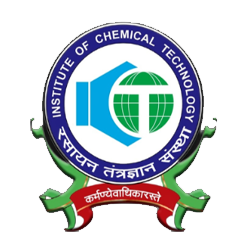

Institute of Chemical Technology
Mumbai, Maharashtra
The Institute of Chemical Technology (ICT), formerly known as the University Department of Chemical Technology (UDCT), was established in 1933 by the University of Mumbai with active support from industry leaders like Sir Vitthalrao Vikhe Patil, Mafatlal Group, and Dorabji Tata Trust. It was created to advance India's chemical and allied industries.
Official website: https://www.ictmumbai.edu.in/
Over time, UDCT evolved into a premier research-driven institute. In 2008, it was granted Deemed University status, becoming ICT Mumbai, an autonomous institution under Section 3 of the UGC Act, 1956.
Notably, it was the first institute in India to get elite Elite Status and Centre of Excellence by the Maharashtra government and also received Category I status from UGC.
Facilities
ICT offers state-of-the-art infrastructure for academics, research, and innovation:
Laboratories: Well-equipped, industry-grade labs for Chemical Engineering, Polymer Science, Pharmaceuticals, and Biotechnology.
Library: A rich resource of over 85,000 books, journals, and access to top international research databases.
Pilot Plants: On-campus pilot plants for process development and scale-up studies.
Computing Facilities: High-performance computing clusters and specialized software for modeling and simulation.
Hostels: Separate hostels for boys and girls with good amenities and security.
Innovation and Incubation Center: For entrepreneurship, startup incubation, and technology commercialization.
Green Campus: Sustainable practices with rainwater harvesting, solar panels, and green zones.
Reputation
ICT is widely recognized for its academic rigor and significant contributions to chemical sciences:
Rankings: Consistently ranks among the top chemical engineering institutes in India, often within the top 10 in NIRF rankings.
Alumni: A powerful alumni base including Padma awardees, CEOs, entrepreneurs, and renowned scientists like Dr. Raghunath Mashelkar and Dr. Anil Kakodkar.
Research Output: Known for high-impact research in chemical engineering, biotechnology, food engineering, nanotechnology, etc., with numerous patents and publications.
Industry Collaboration: Strong ties with industries like Reliance, HUL, and Tata Chemicals for internships, placements, and sponsored research.
Global Partnerships: MoUs with international universities and research centers for joint programs and exchange.
